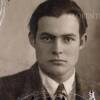Ahead of his upcoming documentary on the life and legacy of Benjamin Franklin, documentarian Ken Burns joined Boston Public Radio to explain why he chose to share the story of one of the most well-known figures of American history.
Perhaps what most attracted Burns to document Franklin's life wasn’t his status as one of America’s Founding Fathers, but rather how Franklin’s life relates to today’s world.
“We don't work on our films thinking, 'Oh, this is going to be contemporary,' we just know it will be." Burns said. "We’ve just got to struggle to tell this story. ... But I think you can remember what Ecclesiastes said: ‘What has been will be again, what has been done will be done again; there is nothing new under the sun.'"
For one thing, Burns said Franklin understood how to talk to people.
"A reporter asked me, weeks ago, 'What would he think, would he be totally confused by social media?' And I said, 'He was social media.' He was a printer, he was a publisher, he was a newspaper man, he was a postmaster ... he would get it in a second," Burns laughed.
The Founding Father was many things, including a symbol of upward mobility. He was born into a lower–middle class family and little education before becoming a writer, a successful businessman, a world-class scientist and a diplomat. Now he is the literal figurehead on the $100 bill.
"He was about doing better, but he's also about all of us doing better," the filmmaker said, adding that Franklin felt a civic responsibility.
Burns notes that Franklin is “someone who just seems so utterly available and human to us,” and is a prime example of “how complicated our greatest heroes are.” While popularly regarded as an inventor, humorist and diplomat, little is told about Franklin’s slave ownership and his eventual turn to abolitionism. At the end of his life, he founded a school for Black kids in Philadelphia and introduced one of the earlist resolutions in America to abolish slavery.
"His greatest invention is himself. ... He's always curious. And to his ever-loving — and our — credit, he is about improvement and about getting better, not being stuck, and not being static," Burns said. "And so this old man, at the end of his life, becomes a revolutionary; and this old man, after he's helped create the United States, becomes an abolitionist.”
As Burns explained it, Franklin's life story contains political division, religious division, false information, family conflict, and more.
“Everything is there," he said. "That's because human nature doesn't change. I'll never run out of topics in American history, because they'll be guides to who we are at this moment right now.”







